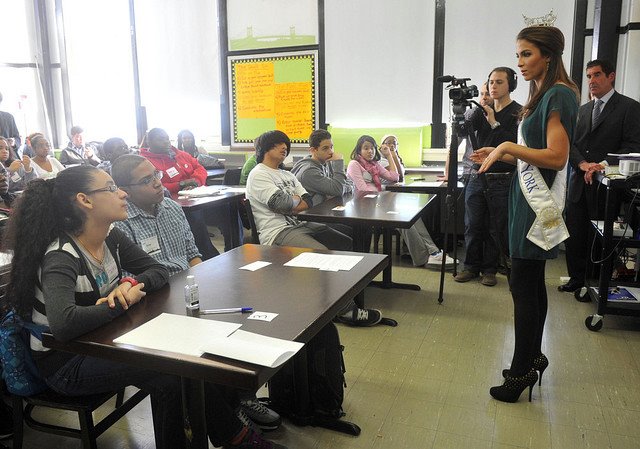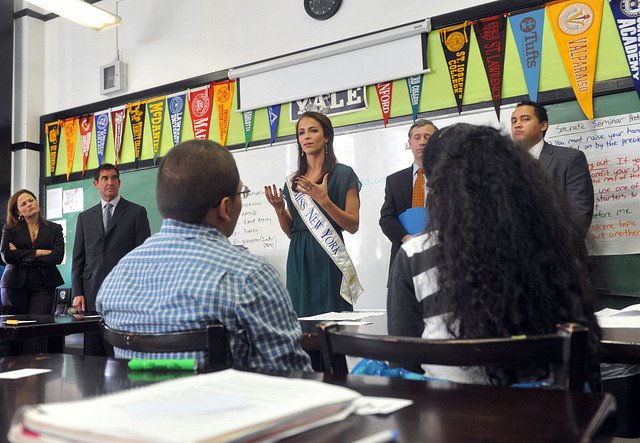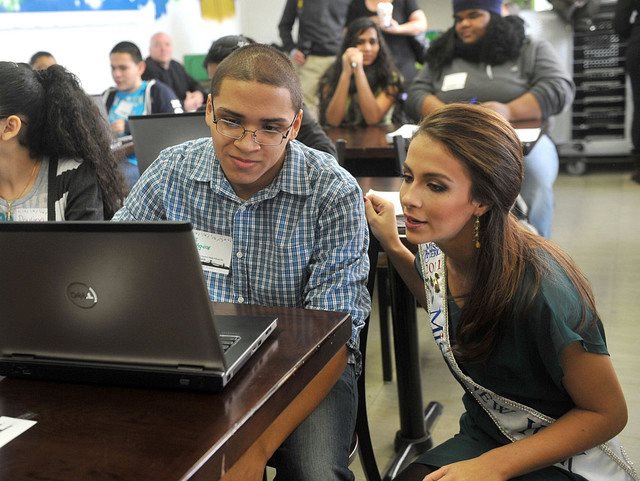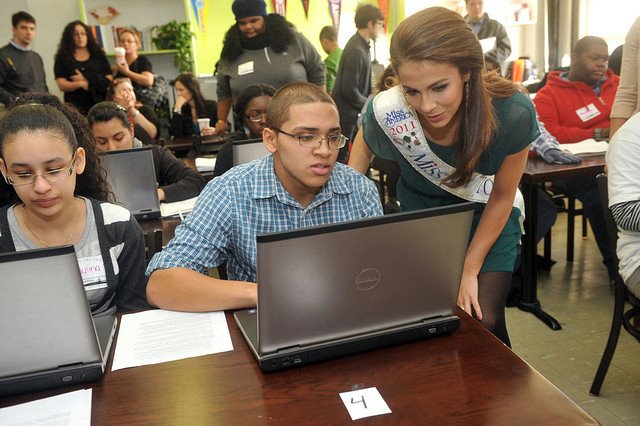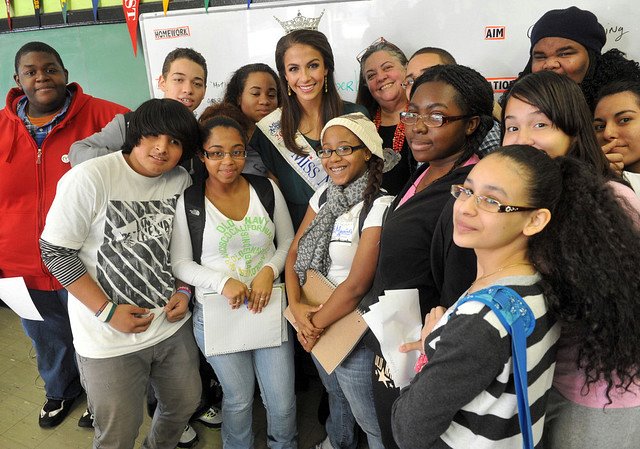To diagnose the issue of cyber-bullying, lawmakers must first understand it's nature and prevalence.
New York Cyberbully Census
New York State lawmakers and anti-cyberbullying advocates joined forces to launch of the New York Cyberbully Census, a 9-month long cyberbullying student census illustrating the breadth and scope of the cyberbullying epidemic in New York schools.
This data gathering initiative - the first of its kind - provided a comprehensive picture of the problem of cyberbullying in New York State by gathering state-specific statistics on the extent and nature of cyberbullying. Nearly 10,000 students, from 45 counties and from over 350 schools took part.
The initiative was part of a wider effort to reform cyber safety laws. The data collected will assist lawmakers in effectively designing legislative and academic tools to protect young internet users from online attacks, New York lawmakers must properly diagnose the issue within the state.
Advocates Kaitlin Monte and Jaimie Isaacs joined Senator Jeff Klein (D-Bronx/Westcheshter), Senator Michael Ranzenhofer (R-Erie/Genesee), and Independent Democratic Conference members in launching the 12-question online survey aimed at gathering information from students in Grades 3-12 throughout New York. The survey is designed to gauge student attitudes, as well as experiences with cyberbullying. The survey is anonymous, allowing students to answer questions honestly and without fear of embarrassment.
The survey was developed with Parry Aftab, a lawyer, recognized authority on anti-cyberbullying efforts, and the founder of www.stopcyberbullying.com.
“We know that cyberbullying is happening in New York State and, tragically, we know that words can kill in the digital age,” states New York Senator Jeff Klein, who spearheaded the effort among legislators. “The Census will enable us to gather hard data about the extent of cyberbullying in New York, help build the coalitions we need to combat this destructive behavior, and help save lives.”
Kaitlin joined Klein in efforts to promote the New York Cyberbully Census.
“I am thrilled to see this initiative take off and hope that –in addition to providing key information about bullying – it will succeed in empowering students to feel they have a voice and are being heard,” Monte said. “Senator Klein is enabling all New Yorkers to be part of the solution. It is an exciting and innovative step forward.”
“We live in an age where bullies can leave the schoolyard and follow their victims everywhere a cell phone goes,” Aftab said. “I'm hopeful that this initiative will help people understand the magnitude of cyberbullying and result in some positive changes for victims who now feel there is no escape.”
Many experts believe the laws have not kept pace with technology, which has made cyberbullying difficult to prosecute.
The Results
2012 results were gathered from nearly 10,000 students across 45 counties, representing over 350 schools.
While 68% of the students surveyed had either witnessed or been personally victimized by cyberbullying, fewer than 1 in 5 of these students ever reported the abuse to an adult. Why did the overwhelming majority of these students never report the incident? According the survey, most students were either too scared, embarrassed, or intimidated to do so.
The census also revealed students’ attitudes towards solving the problem of cyberbullying. An overwhelming number of students—70%—said they would like to see cyberbullying become a crime in New York. At the time, the only pending bills that would actually make cyberbullying a crime in New York have been sponsored by Senators Klein (S.6132) and Ranzenhofer (S.6614A).
“Sometimes, what is obvious to our children should be just as obvious to us as lawmakers. Yes, we need greater education on the issue: but education is not enough,” says Senator Klein, who believes online harassment is a modern form of stalking not being properly addressed by the law. "As a result of this survey, we can finally see the pervasiveness of cyberbullying in our schools. We owe these students an enormous debt of gratitude. Speaking up is never easy, but by doing so, lawmakers, parents, and teachers will finally have their voices heard.”
The survey also found that girls were twice as likely as boys to be cyberbullied by a close friend.
“The tragic consequences cyberbullying are all too familiar to the residents of Staten Island,” said Senator Diane Savino (Staten Island/Brooklyn). “Young girls across the state need to feel that they are protected. By making cyberbullying a crime, we can do just that.”
Senator David Carlucci (D-Rockland/Orange) said: “Thanks to these brave young students, we can now make informed decisions about how to deal with the problem of cyberbullying. After reviewing student responses from across Westchester, Rockland and Orange counties, I’m more convinced than ever that we need to make cyberbullying illegal in New York State.”
Download the 2012 report
